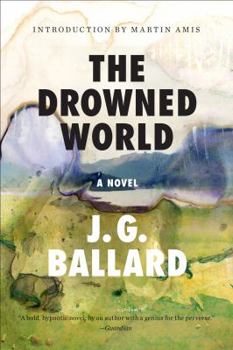The Drowned World
Select Format
Select Condition 
Book Overview
In the novel that catapulted him to international acclaim upon its publication in 1962, J.G. Ballard's mesmerizing and ferociously prescient The Drowned World imagines a terrifying future in which solar radiation and global warming has melted the ice caps, and Triassic-era jungles have overrun a submerged and tropical London. Set during the year 2145, the novel follows biologist Dr. Robert Kerans and his team of scientists as they confront a surreal cityscape populated by giant iguanas, albino alligators, and endless swarms of malarial insects. Nature has swallowed all but a few remnants of human civilization, and slowly, Kearns and his companions are transformed--both physically and psychologically--by this prehistoric environment. The Drowned World is both a thrilling adventure and haunting examination of the effects of environmental collapse on the human mind.
Customer Reviews
The Drowned World, real life dreaming
fantastic
The Drowned World
An interesting spin on the genre
The world ends, not with a bang, but a gurgle
A Modern Atlantis
The Drowned World Mentions in Our Blog

Because we're gluttons for punishment, we thought we'd revisit five notable (and very different) dystopian novels that explore themes of environmental disaster. Just to pique our survivalist instincts this Earth Day.






